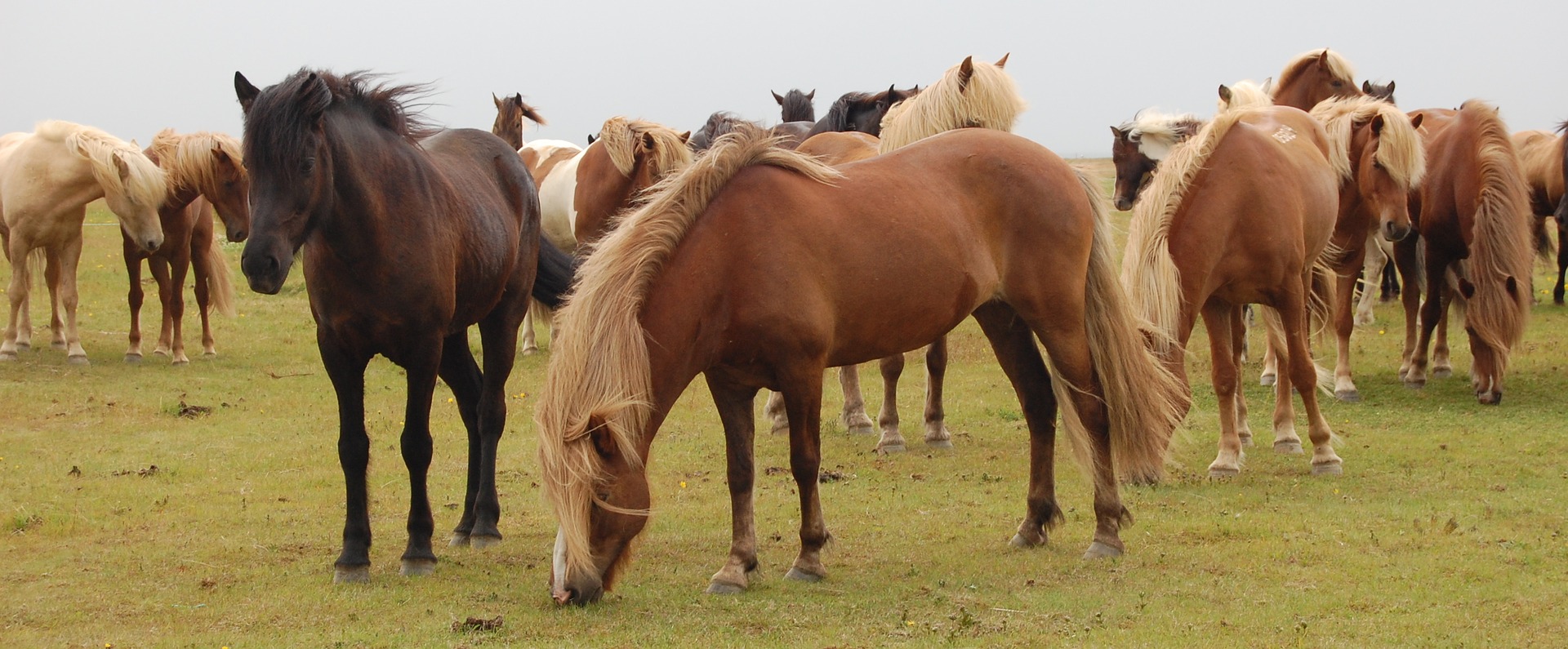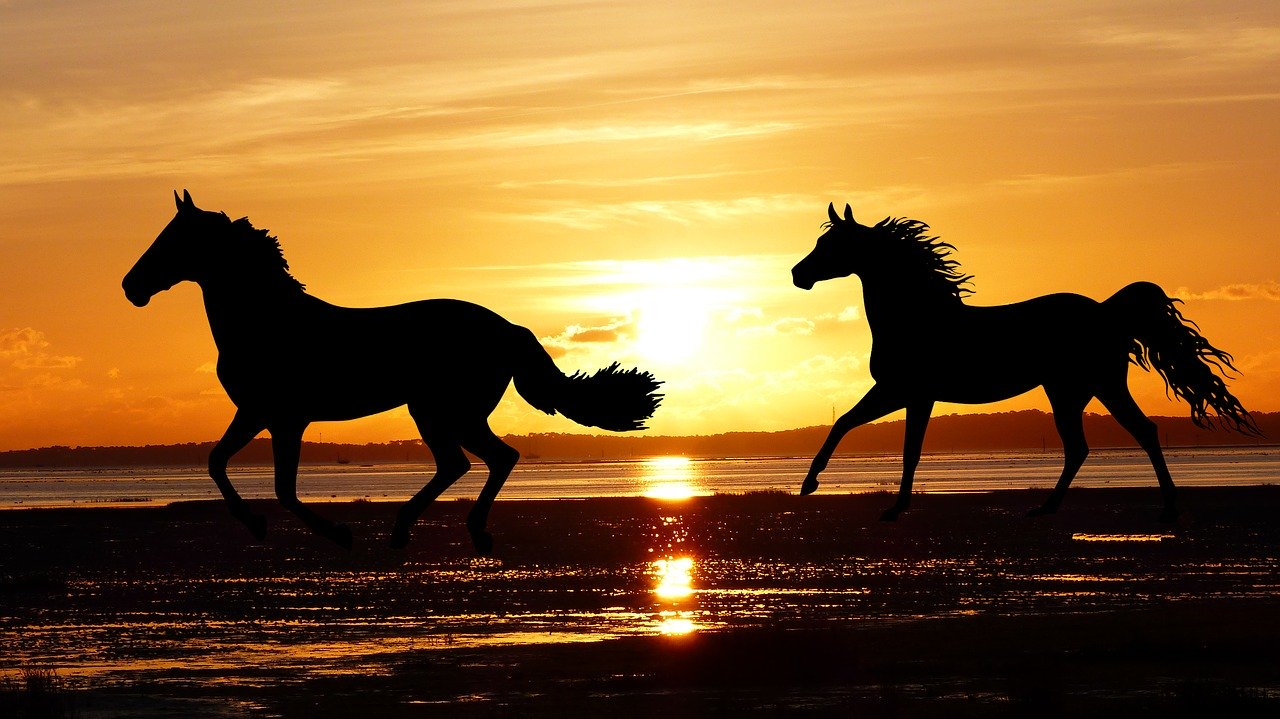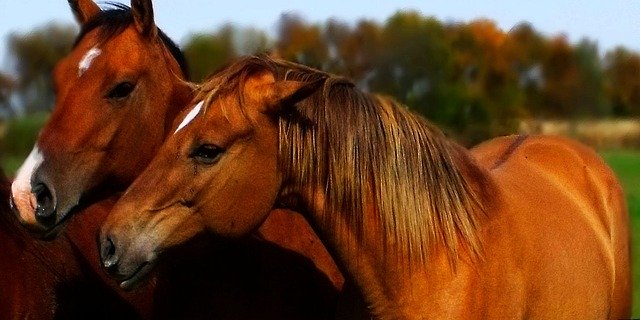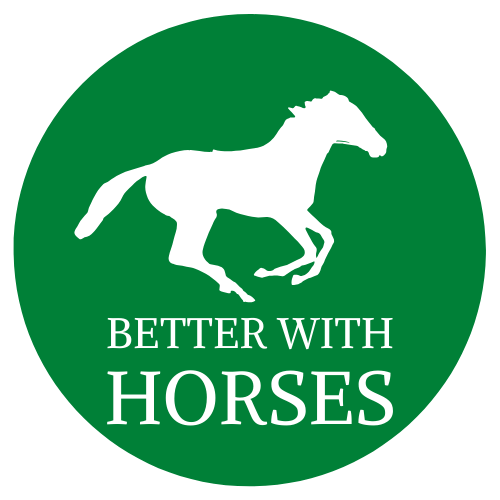
What's the significance of horses being herd animals?
First of all, I assume you're reading this because you want to be around horses as much as possible. Secondly, if you're anything like me, you want to make sure you and the horse have a good experience. So, the best way to have a good interaction with a horse is to understand what makes horses tick.
Horses are herd animals because horses are prey animals.
Not only that, but horses are flight animals. A horse's natural instinct is to run first and ask questions later. Basically, a horse is like a 800-1500 pound bird.

This is why horses bond with each other and depend upon each other for survival. (That's why you can never have just one horse. But that's a whole other discussion.)
But why do horses still act like prey animals? Aren't they safe from predators these days? Yes, but horses don't know that.
Even though the horse that lives in your backyard, or at the neighbor's farm down the street, or at the boarding facility ten miles away (like mine does) no longer lives in the wild, they don't know that.
Horses don't know that the fences and gates and stalls and run-in sheds that humans provide for them are there to keep them safe.
Horses don't know where their next meal is coming from, well, except maybe from that nice lady who brings the hay and feed and refills the trough.
At least she did yesterday and the day before that.
Horses are herd animals because they work together to alert one another to any changes in their environment.

Herd animals need a leader.
Horses naturally look for a leader. That's where you come in.
Because horses are herd animals they form relationships.
Some good. Some not so good.
In fact, it's a horse's desire for relationship and leadership that sets them up to cooperate with humans in many ways.
Some good. Some not so good. But that's also a topic for another day.
Put the Relationship First
The best way to have a positive experience with a horse is by putting the relationship first. But how?
The best way to put the relationship first is by observing the dynamics between horses as they relate to one another in the herd.
Who is the leader? Who pushes the other horses around? What happens next?
The horse who can move another horse's feet is the boss of that horse. The horse that can move the feet of any of the horses in the herd at any given time is the boss of that herd.
You will usually be able to tell who the leader is when there is food, or even the possibility of food, involved. Notice what happens when you stand at the fence (with the property owner's permission of course.)
The herd leader may not be the first horse to the fence, but it will be the one who pushes through to the front with their ears pinned back or a well placed nip.
What happens after a scuffle like that? Usually nothing. The herd goes back to loafing or grazing as if nothing happened.
What does putting relationship first mean for you?
Horses are constantly asking the question, "who's in charge?" They constantly establish and re-establish who leads and who follows through testing who can make the other move.
When you're interacting with a horse in any way, your actions answer that question. Are you causing the horse to move or is he pushing into you?
The techniques to establish yourself as leader usually involve some corrections, basically the human equivalent of pinned ears or a well placed nip, and that's usually all it takes for the horse to accept that you are the leader.
At least in that moment.
It's really that simple, but not necessarily easy.
So, welcome to the herd. Welcome to the wonderful world of horses.
Welcome to learning how to form a herd of two with any horse you are lucky enough to encounter.
